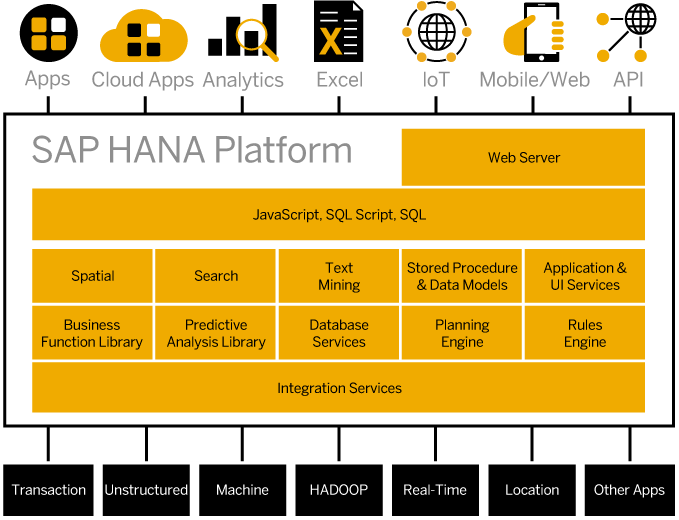When correctly implemented, SAP HANA conveys outstanding results and performance, analytic intelligence, integration capabilities, data processing, and improved ROIs of the SAP landscape with swift time-to-value. Planning and executing a successful transition to the SAP HANA platform is crucial, and this article provides a detailed overview of ten tips that will help mitigate risks during your business’s migration to SAP HANA.
ABAP 740
SAP S/4HANA delivers massive simplifications (customer adoption, data model, user experience, decision making, business processes and models) and innovations (Internet of Things, Big Data, business networks, and mobile-first) to help businesses Run Simple in the digital economy
SAP Suite on HANA can help customers simplify IT by bringing together analytics and transactions for reduced total cost of ownership. Since SAP HANA provides a unique ability to deal effectively with both transactional and analytical workloads.
The SQL Trace, which is part of the Performance Trace (transaction ST05), is the most important tool to test the performance of the database. Now you as of ABAP 7.2, you execute it and other important measurements from inside the New ABAP Debugger.
Now in ABAP 7.4, you can enhance the functionality of a search help object to display possible search results and further values already while typing in a drop-down box beneath the search field. This assists the user who is searching for the desired entry. In addition, for fuzzy searches you can define an error-tolerant value in order to define the deviation of the relevant results.
With the new internal table constructs in ABAP 7.2 and ABAP 7.4 we have the ability to create ABAP code with fewer statements for the same functionality, without compromising readability of the code. New built-in functions like LINE_INDEX and LINE_EXISTS, and new constructor operators such as CORRESPONDING allow us more flexibility and extensibility when developing and maintaining our ABAP code.
With the new conditional code constructs in ABAP 7.2 and ABAP 7.4 we have the ability to create ABAP code with fewer statements for the same functionality, without compromising readability of the code. New boolean functions like XSDBOOL, and new conditional operators such as SWITCH and COND allow us more flexibility and extensibility when developing and maintaining our ABAP code.
With the new code constructs in ABAP 7.2 and ABAP 7.4 we have the ability to create ABAP code with fewer statements for the same functionality, without compromising readability of the code. METHOD CHAINING can make our code shorter, easier to read, and easier to maintain. INLINE DECLARATIONS can help us avoid TYPE MISMATCH errors. And using a CONSTRUCTOR OPERATOR can save us time by eliminating lines of code while increasing the readability of our code.
With the new string options like String Templates, Chaining of strings, and embedded expression string functions, we have the ability to create ABAP code with fewer statements for the same functionality, without compromising readability of the code. If you’re working on a ABAP 7.02 – 7.04 based system, I would start using new ABAP coding because they will improve your speed of development and make your programs better maintainable.
As time has gone by, more and more commands and constructs have been added to the ABAP language. While many changes came as a result of the introduction of SAP NetWeaver 7.02, that is nothing compared to the deluge of change that came with version 7.4. Inline ABAP DATA declarations are a new concept introduced in release 7.4 which allows you to declare your internal table variables or work areas within the code that uses them. This is done simply by adding the DATA(wa_data) or @DATA(it_data) statements.





